Turbocharge Your Service Department: Mastering Efficiency for Maximum ROI in 2025

Understanding the Efficiency Equation: Metrics that Matter
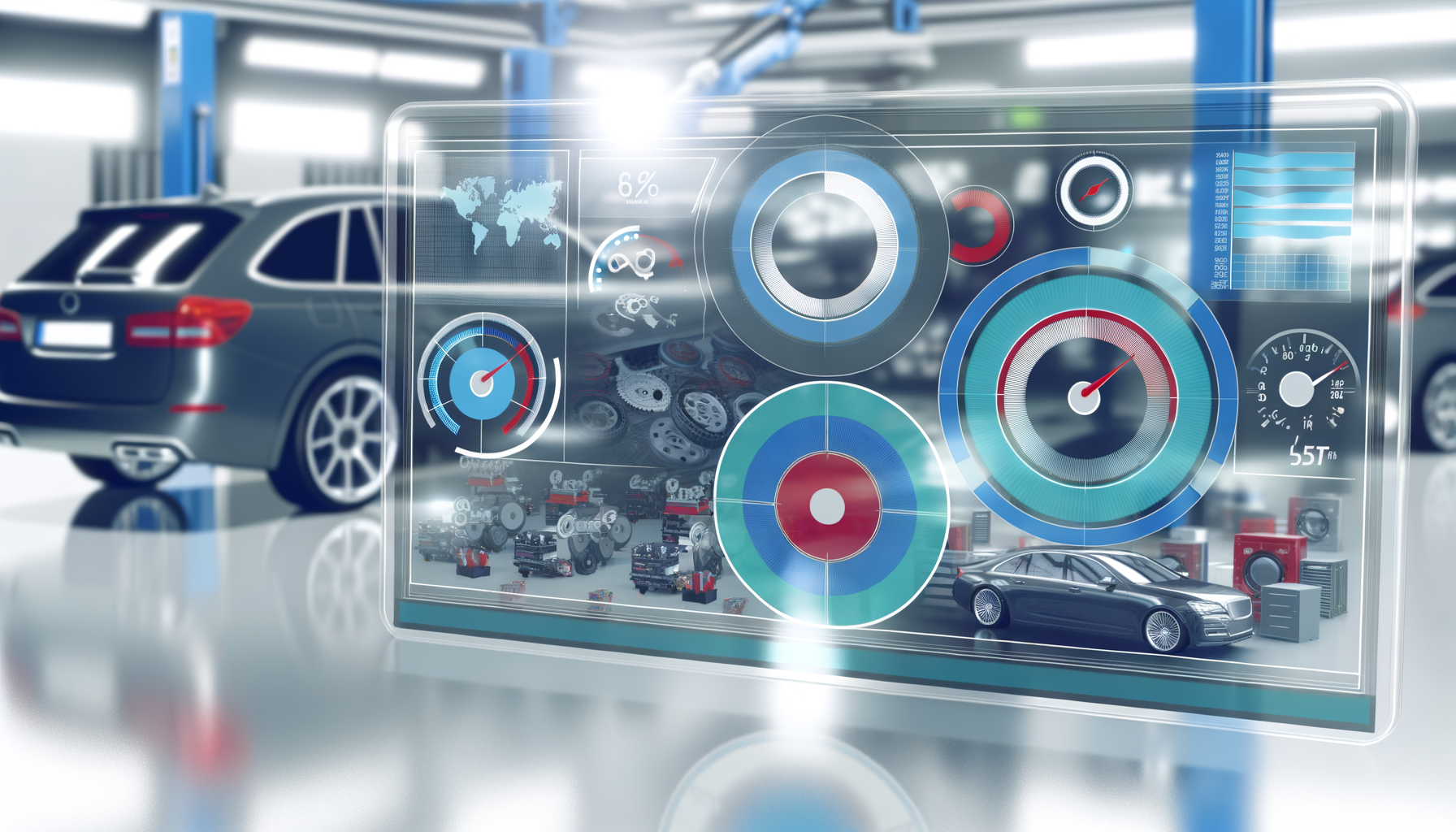
Efficiency in a service department is quantified by several key performance indicators (KPIs) such as technician productivity, repair order cycle time, and first-time fix rate. In 2025, the focus is on integrating these metrics into a cohesive strategy.
Technician productivity, for instance, directly impacts profitability. A 2025 study indicates that dealerships with a productivity rate above 85% see a 20% increase in profitability.
Implement a digital dashboard that tracks these metrics in real-time. By integrating predictive analytics, service managers can anticipate workload issues and adjust staffing dynamically.
Revolutionizing Workflow: Smart Service Bay Management
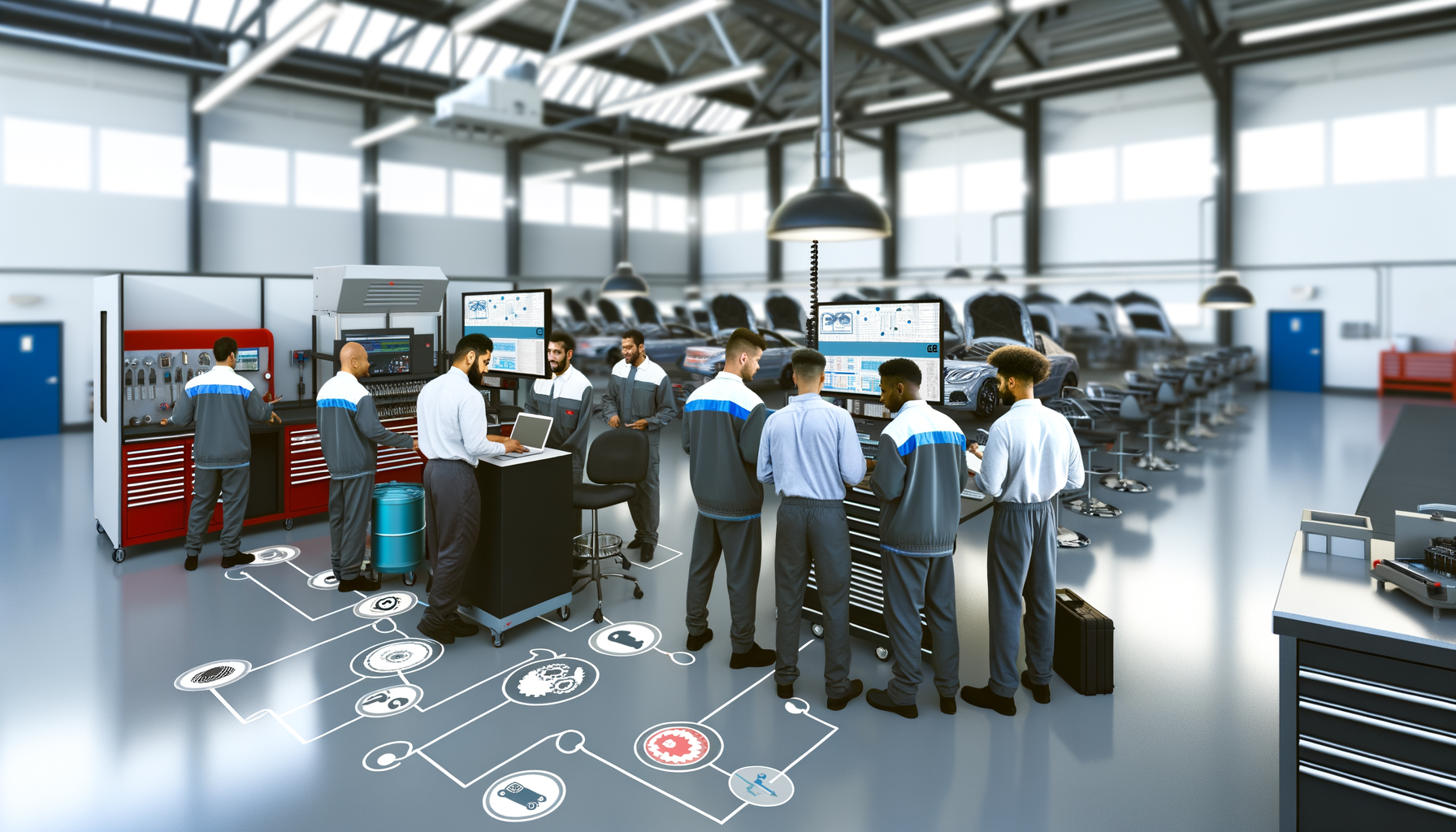
Service bays are the epicenter of efficiency, with layout and management playing crucial roles. Optimizing the physical flow and sequencing of service activities can significantly reduce bottlenecks.
A hypothetical case study shows a dealership improving bay turnover by 30% by adopting a 'lean' layout and using automated parts delivery systems.
Consider implementing a Just-in-Time (JIT) inventory system to ensure parts are available precisely when needed, minimizing downtime and enhancing workflow continuity.
Leveraging Technology: Tools and Automation for 2025
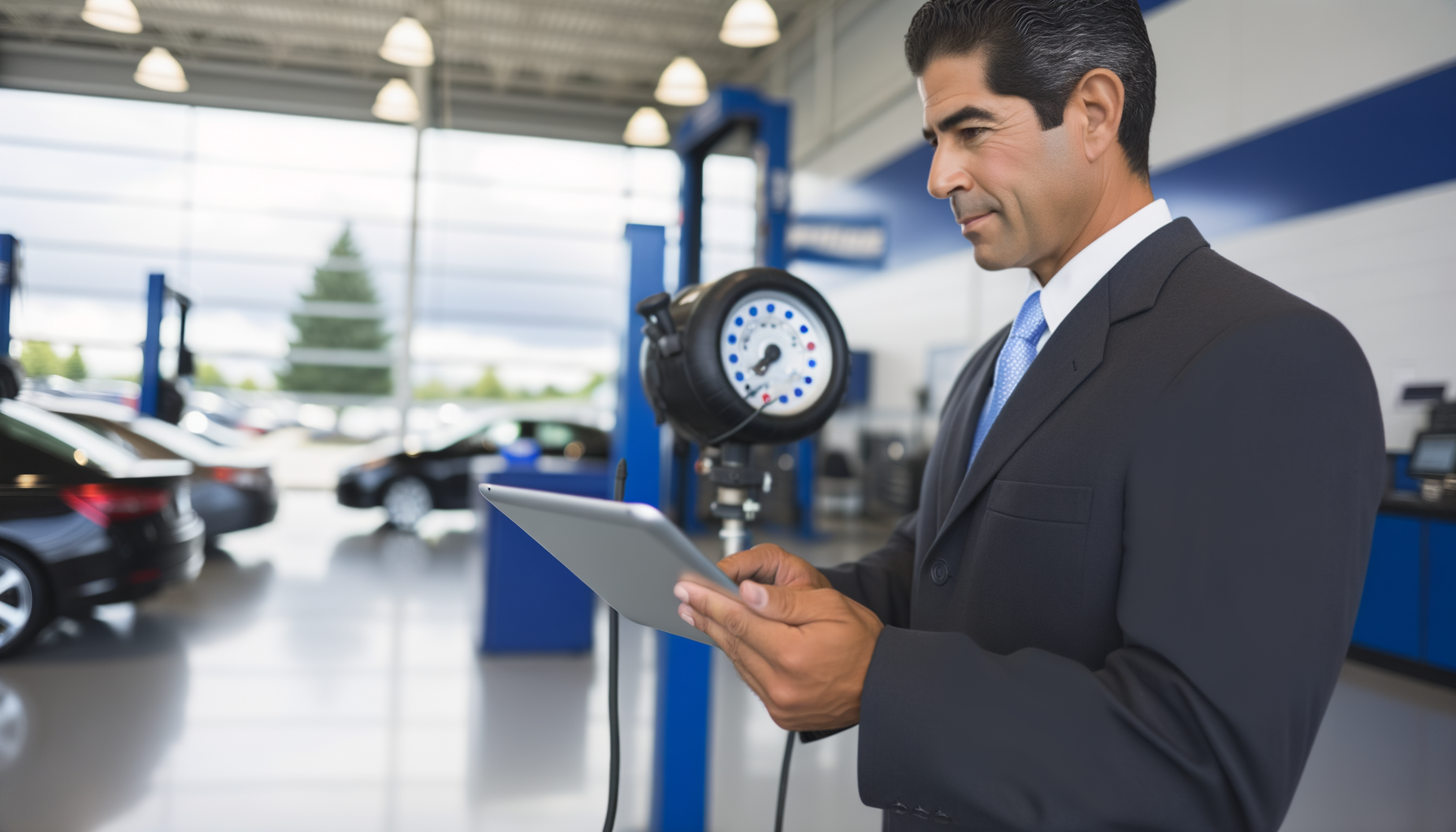
Technology is the lynchpin of modern service departments, with tools like dealership management systems (DMS) and vehicle diagnostic software pivotal in enhancing operations.
With the rise of electric vehicle (EV) servicing, specialized diagnostic tools have become critical. A recent survey found that 40% of service departments plan to invest in EV-specific tools by mid-2025.
Integrate comprehensive DMS solutions that connect every aspect of service operations—from scheduling to billing—to streamline processes and improve customer interactions.
Staff Empowerment: Training and Retention Strategies
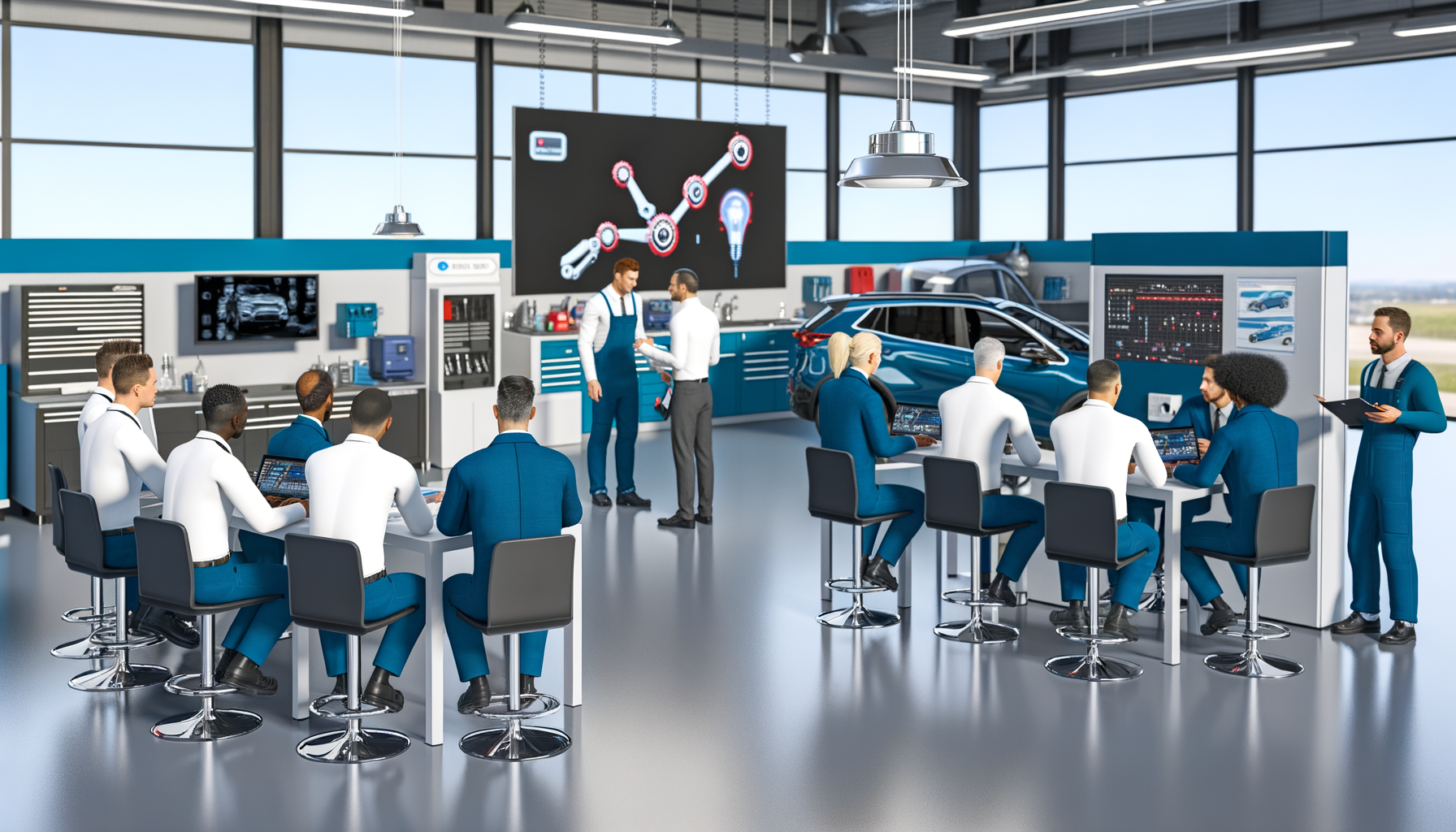
Empowering staff through continuous training and development is crucial for maintaining high efficiency levels. With rapid technological advancements, technician skillsets must evolve.
New OEM requirements necessitate specialized training, particularly in EV maintenance. By investing in staff development, departments can reduce turnover and improve morale.
Develop a structured training program that includes regular updates on the latest technologies and customer service techniques, ensuring your team remains at the forefront of industry standards.
Customer-Centric Scheduling: Reducing Wait Times

Customer satisfaction is directly linked to service wait times. A streamlined scheduling process can significantly enhance the customer experience.
With 68% of customers preferring digital service scheduling, integrating online portals and mobile apps can reduce booking friction and improve transparency.
Implement a digital scheduling system that offers real-time updates and reminders, allowing customers to select convenient service times and receive alerts about any changes.
Data-Driven Decisions: Harnessing Analytics for Continuous Improvement
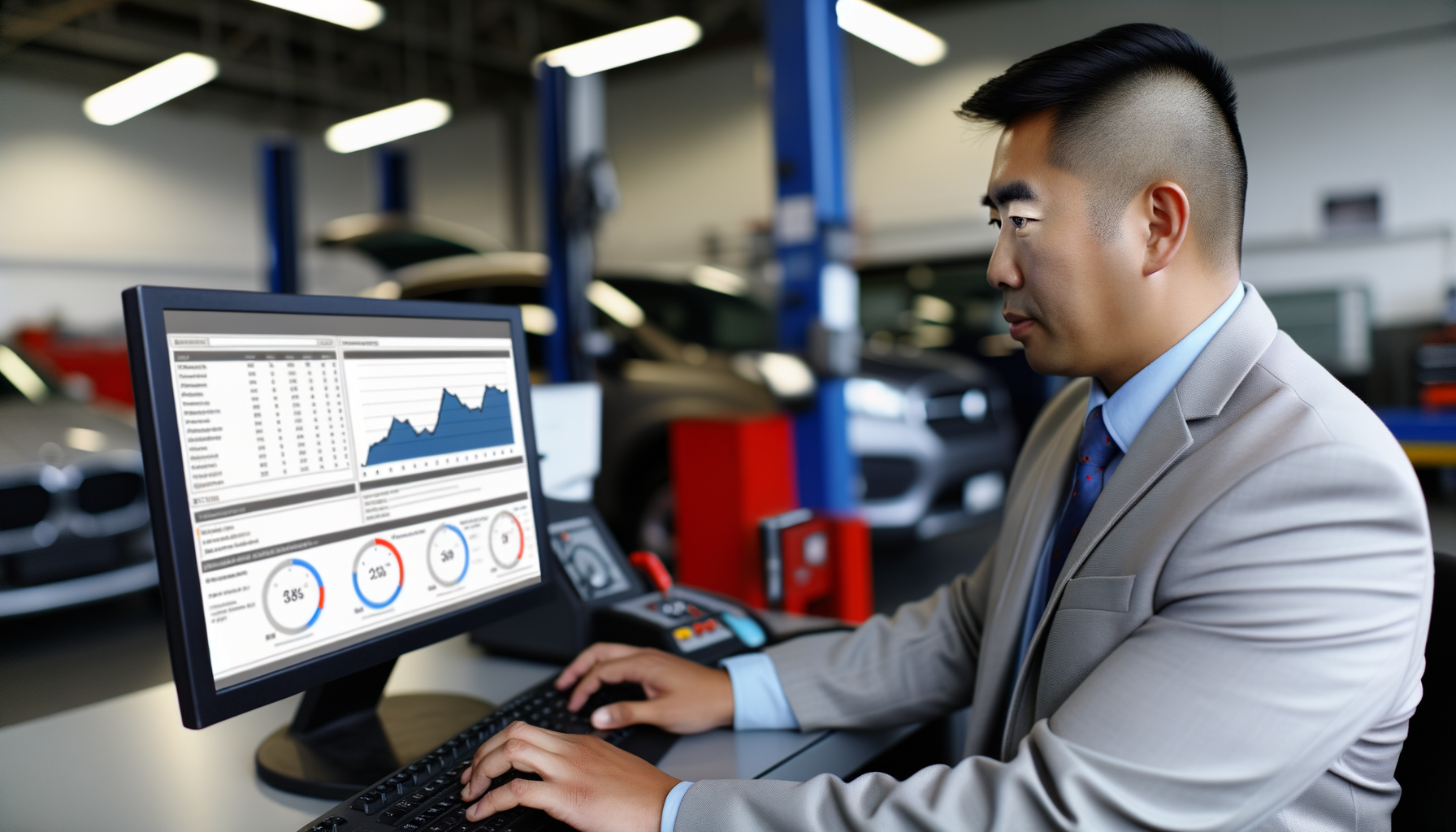
Data analytics is a powerhouse for driving efficiency improvements. By analyzing service data, managers can uncover hidden inefficiencies and optimize operations.
A dealership implemented advanced analytics to identify peak service times, allowing for better resource allocation and reduced customer wait times by 15%.
Utilize predictive analytics to forecast service demands and adjust staffing levels accordingly, ensuring optimal resource utilization and enhanced customer satisfaction.
Related Topics
Ready to take your service department to the next level?
Schedule your demo today and experience the power of Auto Pro Solutions.
Schedule Demo